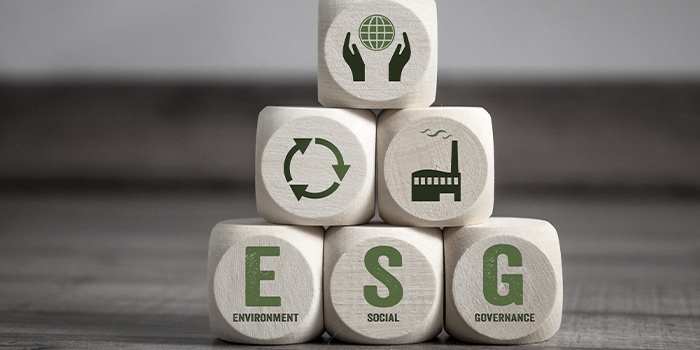
Environmental, social and governance (ESG) investing refers to a set of standards for a company’s behaviour used by socially conscious investors to screen potential investments. ESG investors seek to ensure that the companies they fund are responsible stewards of the environment, good corporate citizens, and are led by accountable managers.
For those new to investing within financial markets, it may seem incongruous that ESG has not always been as prevalent as it is today. But while sustainable investment has been around since the early 1970s and the actual term ESG was first coined back in 2005, it has only been in the last seven or so years that ESG has shaken off its tag as an optional sub-category (that generally offered the moral high ground rather than high investment returns) and is now seen as a fundamental part of any investment decision.
Climate change is the highest priority ESG issue facing investors. The effects of climate change and the actions taken (or not taken) by various governments around the world to shift to a low-carbon global economy are well documented and have certainly acted as a catalyst for ESG. But while the space is, by definition, environmentally conscious, it also goes much deeper than that.
Environmental investing is a huge topic, with many areas of consideration and many areas of contradiction. Investing in a solar farm that will generate electricity for thousands and reduce the reliance on fossil fuels seems to tick all the boxes for an ESG investment. But if the minerals needed to build that solar farm were mined in Central Africa in countries with poor records on human rights and suspicions of modern slavery, then suddenly a positive green investment has a negative social impact.
The social aspect of ESG looks at a company’s relationships with internal and external stakeholders. Is the company receiving the investment able to demonstrate that it is ethical and socially conscious through diversity, inclusion, community-focus and social justice? Do workplace conditions reflect a high regard for employees’ health and safety? Does it hold suppliers to its own ESG standards?
The governance aspect of ESG looks at the running of the company itself. Good governance standards ensure a company is transparent with its accounting, has diversity in its senior management and strong shareholder participation in important decisions.
As you can see, the three criteria that encompass ESG are each broad enough to be their own stand-alone category. ESG can therefore become very difficult to navigate, particularly with prevalence of extensive ‘greenwashing’ in today’s investment markets. Greenwashing is the troubling practice of deceiving investors into thinking that they’re making an ESG-friendly investment when the ESG claims are false or overstated.
A deeper dive is often required to prove whether ESG claims really meet the full criteria. There are two main routes into the space: positive screening and negative screening. Positive screening will put emphasis on companies investing in renewable energy or strong business ethics. Negative screening will highlight companies investing in sectors deemed undesirable such as tobacco production or arms dealing.
As demonstrated by the example of the solar farm above, it can still be very difficult to know if you’re investing in something that is truly ESG positive. To help combat these uncertainties, many discretionary fund managers now offer bespoke ESG solutions allowing the investor to have an input on what matters to them. There are also ‘off the shelf’ ESG model portfolios and funds that an ESG-conscious investor can access. These products have been selected by fund managers with access to global research teams and years of experience in the industry.
Long seen as a bit of a fad by many in the industry, ESG has moved to the forefront for investment managers and investors alike. Today’s investors are increasingly concerned to align their portfolios with ESG-related companies and fund providers, making it an exciting area of growth that also has positive effects on society and the environment.
As independent wealth advisers, Sovereign Wealth are not tied to any single investment manager or private bank and are committed to delivering genuinely objective and impartial financial guidance, as well as enhanced levels of oversight and security. If you are interested in ESG portfolios, please get in touch.
